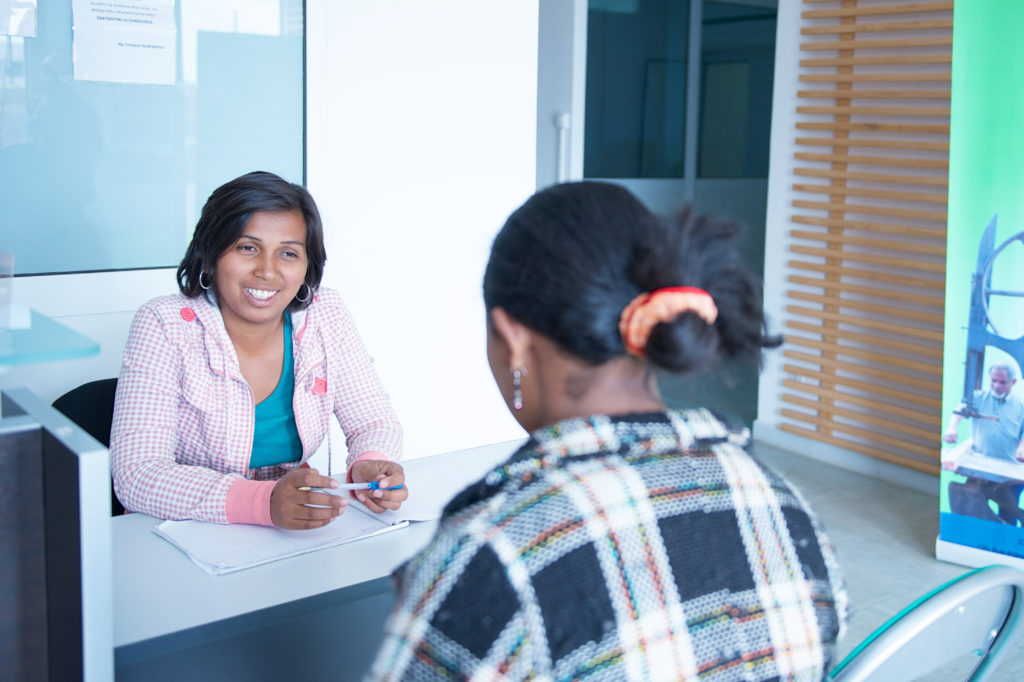According to the World Bank’s definition, financial inclusion is the ability for individuals and businesses typically excluded from traditional financial services to enjoy affordable access to financial products and services that meet their needs.
Every year, numerous conferences are held by the Bretton Woods Institutions to explore strategies on how to improve financial inclusion and develop financial literacy in Africa. Two years ago, the Central Bank of West African States (BCEAO) initiated a program to promote financial education and even set up a central department dedicated to financial inclusion issues. In addition, several countries such as Cameroon, Senegal, and Togo are working on their own inclusive finance strategies.
All of this suggests that there is a real lack of financial inclusion in most Sub-Saharan African countries, largely due to a lack of financial education. This could be resolved by encouraging African individuals and businesses to save through the formal channels of our respective local economies.
What we have learned from recent financial scandals
Many of us today would argue that it is difficult to get ahold of savings from African households. How then are we to understand the success of financiers who have obtained large sums of money through Ponsi schemes in recent financial scandals such as the MonHévéa case in Côte d’Ivoire or the MIDA phenomenon in Cameroon (as well as of other scandals that are probably yet to be exposed)?
These are organizations that guarantee 300%-400% profits in a number of months and that have continued to grow over the years in plain view of the authorities (sometimes even thanks to ads broadcast on national channels.)
There are at least two things we can learn from these financial scams.
First of all, in light of the large number of victims and the monetary amounts involved, we can see that savings do exist in African households. These savings consist principally of small sums (also called household savings) of all segments of the population.
It is also clear that these scammers possess persuasion techniques that enable them to obtain the savings that are so highly coveted by our numerous international development programs and that continue to escape local and legal financial institutions today.
Leveraging traditional administration
Financial education is clearly necessary for our African leaders and officials, who in some countries have been involved in the bad practices mentioned above, often due to a lack of knowledge on these subjects. To educate also means to raise awareness, and this could be done by explaining that savings rates of 20% or 30% do not exist (to say less of rates of 200%, unless we’re projecting savings for our great, great grandchildren!). We can only hope, then, that well-thought-out financial education strategies aim to educate officials and politicians as well as their constituents…
Financial education should not only be done at the civic level (sub-prefects, mayors, etc.), but also at the level of traditional administrators (e.g., traditional chiefs, neighborhood chiefs) who are the most effective agents for raising awareness in their communities.
African nation states could go even further by creating postal bank agencies within certain large chiefdoms in order to exploit close relationships of trust and respect that persist today between villagers and their traditional authorities
Integrating pragmatic solutions
The goal is not to point the finger at these voluntary initiatives designed to improve the social conditions of our populations, but rather to emphasize the need to incorporate the socio-economic and cultural fundamentals that guide/dictate our societies.
Grand plans are not necessarily effective agents of change. The approaches on this matter should be as pragmatic as possible. While a National Financial Inclusion Program sets a 5-, 10-, or 15-year goal for improvement, a pragmatic approach must set a goal for the near future, while working to immediately improve financial literacy, so that:
- When the next harmful initiative emerges, it will not have anywhere near the same impact.
- Civil society, especially the informal sector, can let go of the inferiority complex they nurture vis-a-vis the banks, for various reasons: low income, language barrier (for the illiterate…)
How can we understand that these same people had no trouble giving their savings over to illegal practices. The main reason was these scam artists’ promises to multiply their money.
African banks should communicate more with all these small savers, in a language that is relevant to them, promising them growth on their savings based on an interest rate.
This communication could also be led by the States, through the technological means of communication that 90% of Africans are now using. Mobile technology can be used to offer financial services, as is the case today (mobile banking), and as a means of increasing education and awareness on banking and financial concepts. This education could be transmitted not only through written text messages, for those who can read, but also through voice messages spoken in the local dialect, thus enabling illiterate or less-educated people to access this knowledge.
Financial education and, above all, greater financial inclusion, could only strengthen the development capacities and profitability of local entrepreneurship, which overwhelmingly operates in the informal sector, and whose members face numerous financial and organizational management challenges.
